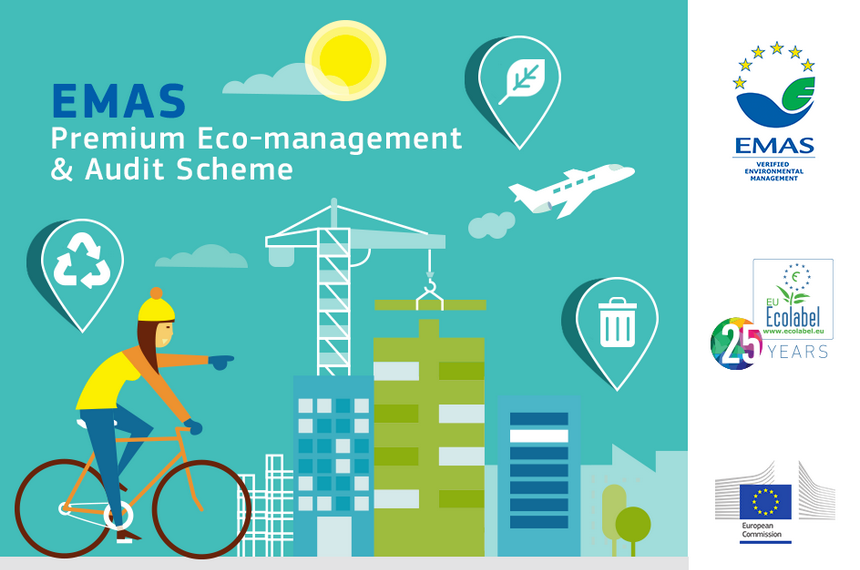
- Blog
- Commission evaluates the implementation of EU Ecolabel and EMAS (Eco-Management and Audit Scheme)
Commission evaluates the implementation of EU Ecolabel and EMAS (Eco-Management and Audit Scheme)
On June 30th this year, the European Commission published the results of the fitness check on the EU Ecolabel and EMAS (Eco-Management and Audit Scheme) voluntary certification schemes.
The study was carried out with the aim of verifying to what extent the two regulations, EU Ecolabel and EMAS, are effective in achieving the benefits for citizens, businesses and society. The study showed the relevance, efficiency, effectiveness, consistency and added value that the two certification schemes have for the European Union. In summary, the results concerning Ecolabel EU and EMAS are:
• Relevance: the two regulations are relevant in that they meet the general objectives (reducing the environmental impact of consumption and production); specific objectives (environmental efficiency of organizations) and operational objectives (environmental improvement in participating organizations). However, some limits are still to be overcome.
• Effectiveness: The analysis shows that the regulations are partially effective, as they ensure higher environmental performance of Ecolabel EU brand products and high environmental efficiency in most environmental indicators such as water, energy and CO2 for EMAS certifications. However, overall effectiveness is still too low for its potential since there is a limited adherence to the two regulations by organizations as well as little promotion at all levels of the importance and benefits of the EU Ecolabels.
• Efficiency: The study highlights efficiency measurement issues as cost and benefit data do not allow for proper analysis. However, it is noted that efficiency is reduced when due to the cost of compliance and verification for individual companies and organizations they are superior to the benefits, thus reducing the value for organizations and producers and discouraging their adoption, especially in the case of small and medium-sized enterprises.
• Consistency: The regulations are consistent with other relevant European policies on sustainable production and consumption as well as being complementary to them. However, better synergies could be achieved thanks to the benefits and opportunities provided by the EU Ecolabel and EMAS.
• Added value: the study of this point is uneven. However, the added value of the two regulations for the European Union is to the extent permitted by the purely voluntary nature of the schemes.
Concerns about the socio-environmental impacts and the implementation of the circular economy lead to many improvements, although the European Union recognizes that still many limits are yet to be overcome both in terms of legislation and in practical terms.
Author: Giulia Netti (LUM University)

Follow us on